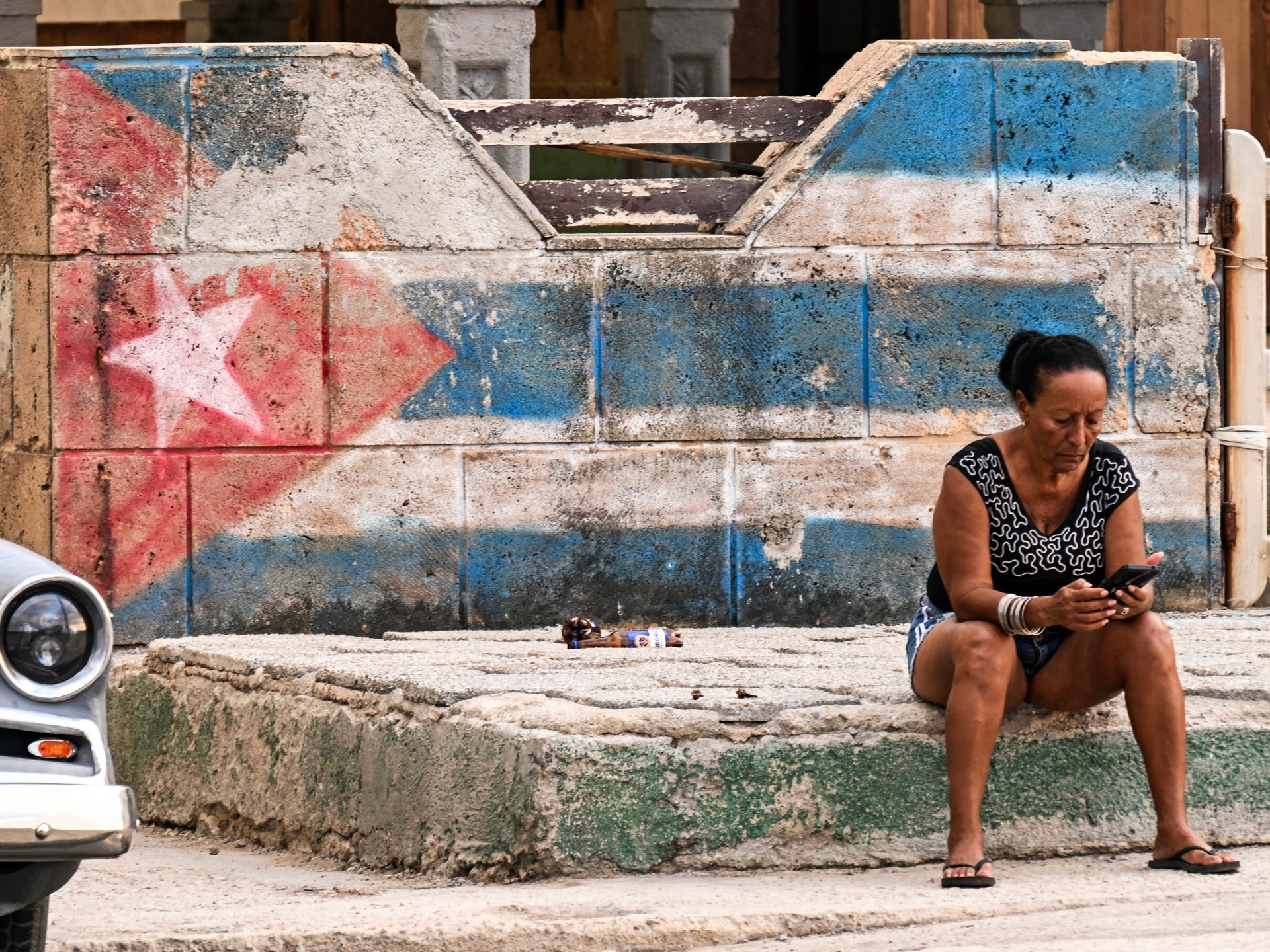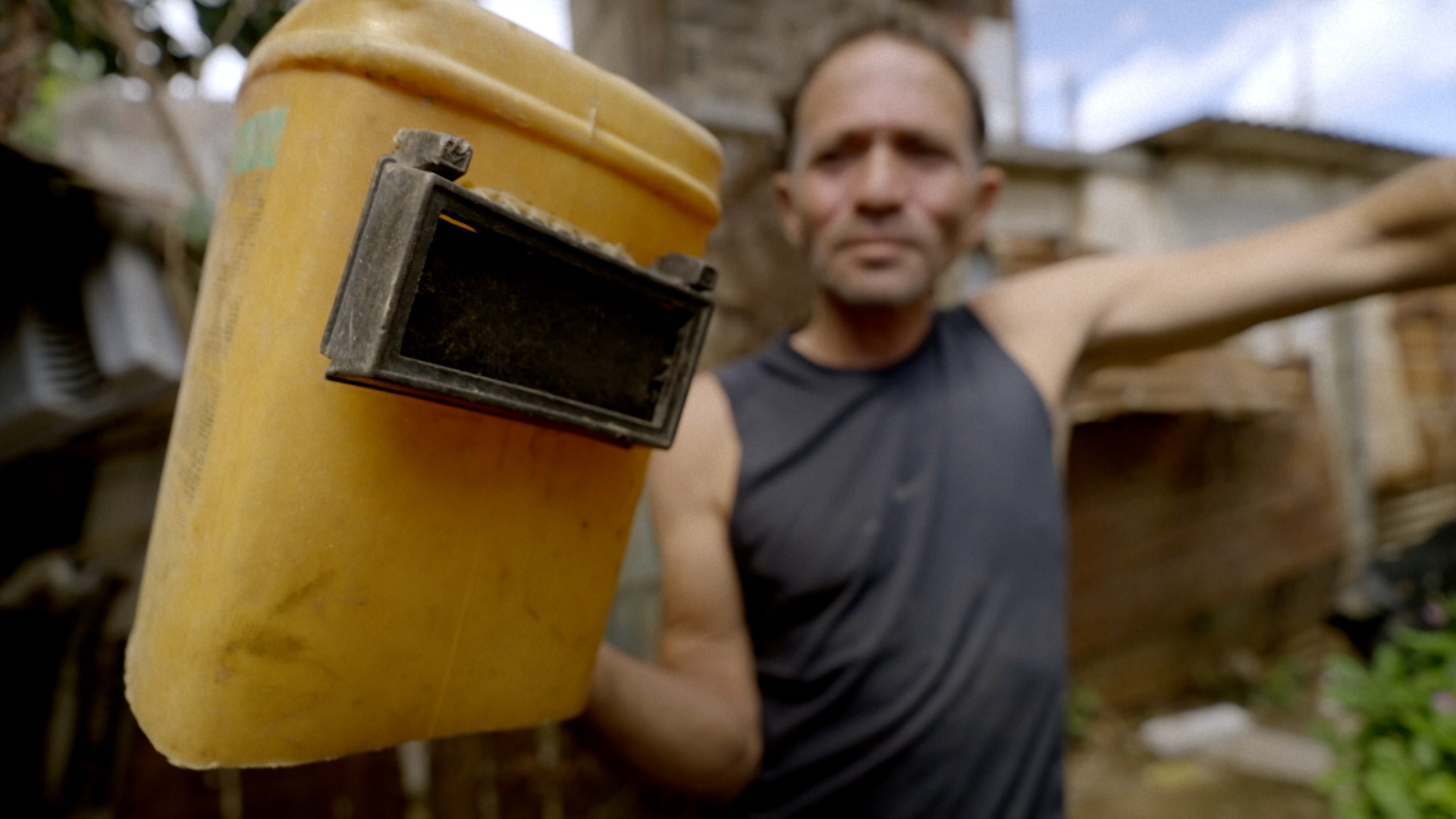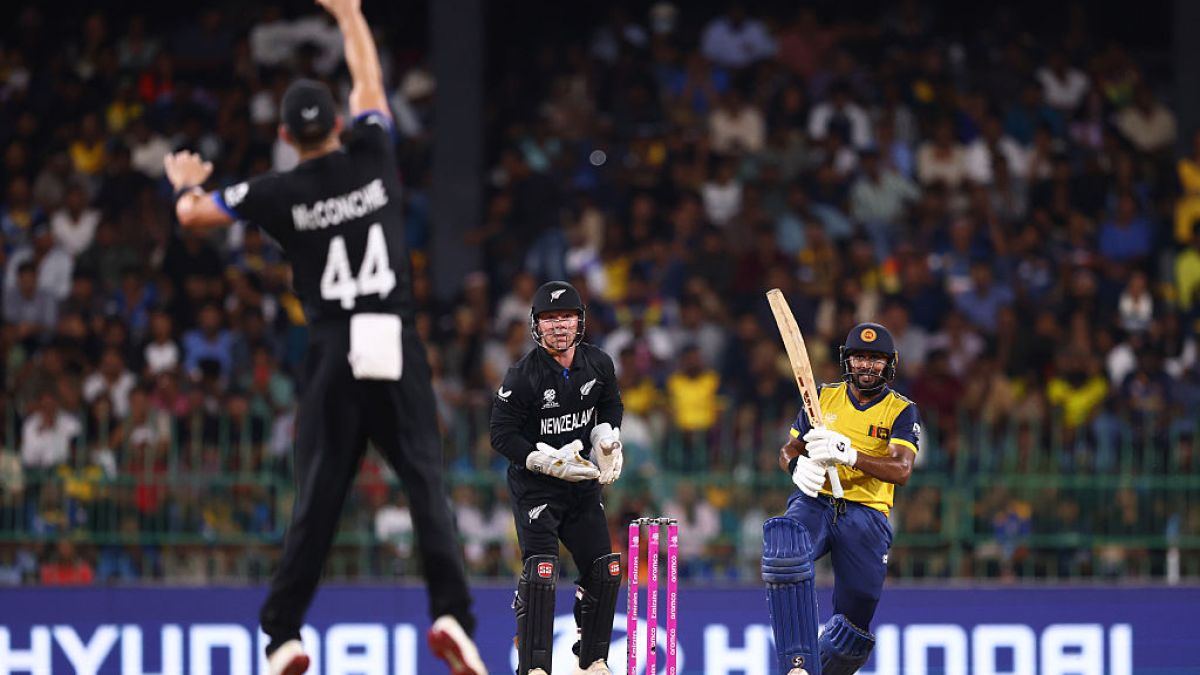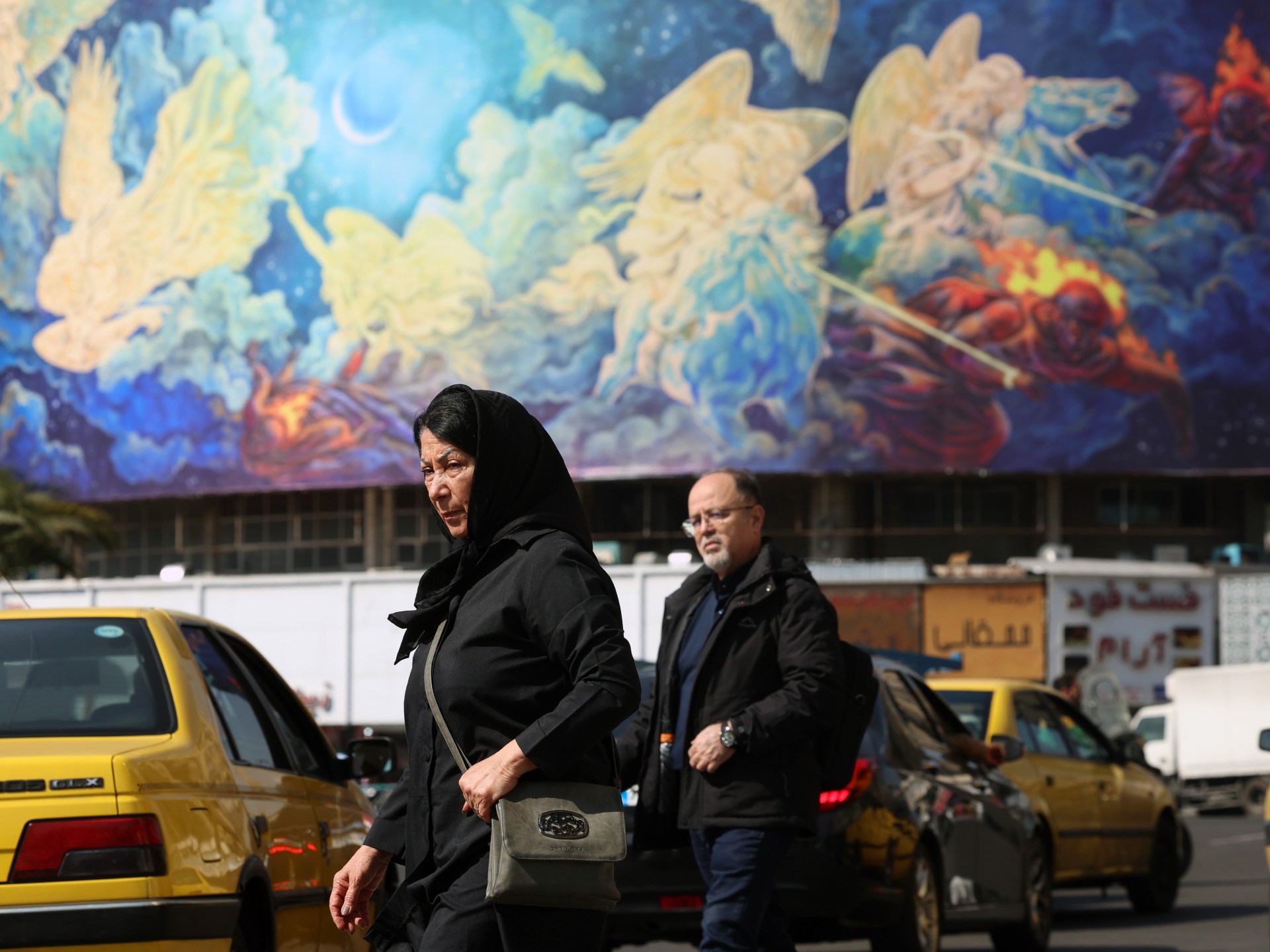Tehran, Iran – Iranian authorities have rejected reports that a former president tried to grab power at the height of last month’s nationwide protests and characterised the claims as “purely fictional narratives”.
A French media report saying former moderate President Hassan Rouhani gathered influential clerics, Islamic Revolutionary Guard Corps (IRGC) commanders, and other figures, like former Foreign Minister Mohammad Javad Zarif, to take power was “likely based on false information and speculative accounts provided to the author”, Iran’s embassy in Paris said on Wednesday.
Recommended Stories
list of 3 itemsend of list
“This article is a clear example of an organised campaign to produce and disseminate false and fabricated information aimed at damaging Iran’s image. It holds no real value or credibility,” it said in a statement released by state media.
The report said Rouhani’s alleged attempt to overthrow 86-year-old Supreme Leader Ayatollah Ali Khamenei and rebrand the Islamic Republic failed after Iran’s security chief Ali Larijani refused to support it. Larijani has now been given expanded powers in case of war with the United States, according to Western media reports this week.
Rouhani and Zarif were placed under arrest shortly after thousands were killed on the nights of January 8 and 9 during the anti-establishment protests, according to the French report.
The claim of the arrests was first raised last month by two hardline politicians, including a lawmaker, but was denied by Rouhani and Zarif separately at the time. Appearing next to former reformist President Mohammad Khatami, Rouhani also released photos from a funeral event to show he was not under arrest.
On Tuesday, Rouhani’s office slammed the reports that he was positioning himself to replace Khamenei – who has been in power for 36 years – and framed it as a “continuation of the psychological operations of American and Israeli sources”.
The former president said in a statement that the reports were aimed at creating “doubt and concern among public opinion in Iran to complete their [the US and Israel] maximum pressure through economic sanctions and military threats”.
In its statement on Wednesday, the Iranian embassy in France also rejected any connection between the arrests of top reformist leaders earlier this month and the alleged neutralised power grab scheme.
The arrests “were solely related to public statements and the issuance of declarations made during the unrest” in January, according to the embassy.
Some of the reformists have since been released after posting considerable bail, but several remained incarcerated as they had previous political prison sentences hanging over their cases with judicial and intelligence authorities.
The most damning statement by a former official and reformist figure after the protest killings was from former presidential candidate Mir Hossein Mousavi, who has been under house arrest since shortly after the 2009 Green Movement protests. Multiple political activists were arrested in connection with helping the release of his statement, which said that the “game is over” and called for a peaceful transition away from the Islamic Republic.
Former Presidents Khatami and Rouhani also called for major reforms, and Iran’s Reformists Front said it would have to cease to exist if the theocratic establishment does not take steps to change course.
Iran’s supreme leader, however, called the events during the unrest a “coup” that was carried out to serve the interests of the US and Israel.
Student protests restarted this week in Tehran and multiple other major cities after universities were reopened for the first time after the January nationwide protests.
The condemnation of the foreign media reports by Iran’s authorities come amid two other stories publicly rejected over recent days.
The Mojahedin-e Khalq (MEK), a foreign-based group considered a “terrorist” outfit by Tehran for launching armed attacks on Iranian soil decades ago, claimed a major operation on the headquarters of the supreme leader this week.
It said in a short statement that more than 100 of its fighters were killed or arrested, and more than 150 more fled, after “inflicting heavy casualties” and engaging in an hours-long firefight early Monday inside a compound located in Tehran’s Pasteur area – where numerous government offices are located.
While some residents reported hearing loud noises on the day, and unconfirmed reports said a number of schools in the surrounding area were closed abruptly, there was no evidence to suggest a bloody battle in the area.
Gholamreza Sanaei Rad, a senior IRGC commander and deputy for the political-ideological office of the supreme leader in the force, suggested that such a large operation could not have taken place at a top security compound in the capital without anyone noticing.
“This is merely a claim, and they are making it to introduce themselves as an alternatives for their masters, who have now turned to the pro-monarchy and Pahlavi camp,” he told the state-linked Iranian Labour News Agency on Sunday, in reference to US support for Reza Pahlavi, the son of the Iranian shah deposed in the 1979 Islamic revolution.
The IRGC-affiliated Mehr news agency said that several “mercenaries used PVC tubes to make something like a children’s toy and create some noise in Tehran to keep benefitting from their masters”.
Iran has blacklisted a number of US politicians for funding the MEK or delivering speeches at their ceremonies. The group has little support in Iran, partly because its forces joined former Iraqi President Saddam Hussein during his eight-year invasion of Iran in the 1980s.
This week, another Western media report suggested that Turkiye might launch a military operation inside Iran to secure its own borders if a war with the US leads to chaos and prompts Iranians to seek refuge in the neighbouring country.
But a statement by the communications office of Turkish President Recep Tayyip Erdogan, carried by Turkish news outlets and picked up by Iranian counterparts on Sunday, rejected the allegation as containing “disinformation”.





